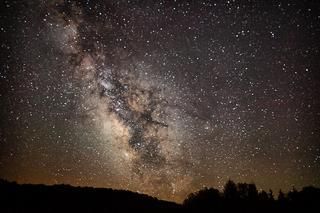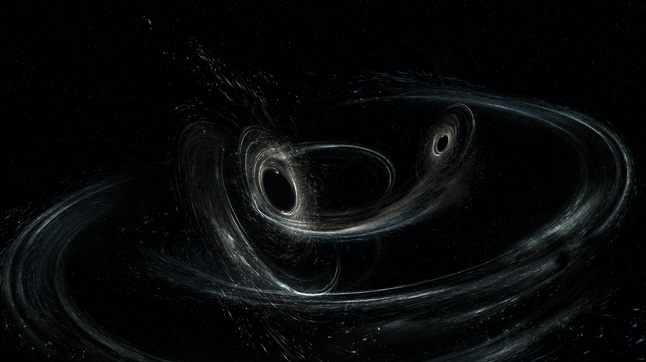Cosmic archeology is just a fancy way to say that one targets the study of the early universe.

In the same way archeology addresses what was going on in the early days of the human race (and later too, but this is a kind of detail for this post), cosmic archeology focuses on what was going on in the early moments of the universe.
Nothing more, nothing less.
As archeology is a science associated with a dedicated set of tools allowing to dig into the old days of human history, cosmic archeology comes with a variety of tools allowing physicists to study what happened billions years go.!
GRAVITATIONAL WAVES IN A NUTSHELL
[image credits: Wikipedia]
Let us start with a definition. Gravitational waves are small ripples distorting spacetime that are generated by ‘catastrophic’ events in the universe.

In other words, once produced, gravitational waves slightly distort spacetime during their propagation, in the same way ripples can be observed when one throws a stone in water (as illustrated on the picture).
Gravitational waves consist of a prediction of the theory of general relativity proposed by Einstein in the first part of the 20th century.
They have been observed for the first time exactly 100 years later by the LIGO and VIRGO collaborations, and the observations were a sign of the merging of either two black holes or of two neutron stars.
And this detection yielded a Nobel prize some weeks ago :)
THE CHALLENGE: DETECTING GRAVITATIONAL WAVES
Let us now come back to one point.

I have mentioned in the previous section that one needed catastrophic events in the universe to get some gravitational waves that are observables.
This stems from the fact that significant gravitational interactions are needed to get anything detectable on Earth.
In other words, we need events involving the gravitational interactions of super-massive objects like black holes or neutron stars to get something noticeable.
And even in this case, the ripples in spacetime that are generated are extremely small. When two huge black holes or neutron stars merge, one gets tiny variations of spacetime of about 10-19m.
This is is equal to. 0.0000000000000000001 meters, and this is the variation of spacetime that one needs to measure! The good news is that we managed to do it! Humans are sometimes suprizing, in particular when interferometry is used.
After a catastrophic event takes place in the universe, one needs to wait a little bit before being able to observe it here. The reason is that we need to give to the gravitational waves enough time to propagate.
Like electromagnetic radiation, gravitational waves travel at the speed of light. It will thus take some time between the moment the waves have been emitted and the moment they are recorded. Traveling in space indeed takes time…
Congratulations @isagar! You have received a personal award!
Click on the badge to view your Board of Honor.
Do not miss the last post from @steemitboard:
Downvoting a post can decrease pending rewards and make it less visible. Common reasons:
Submit
Congratulations @isagar! You received a personal award!
You can view your badges on your Steem Board and compare to others on the Steem Ranking
Do not miss the last post from @steemitboard:
Vote for @Steemitboard as a witness to get one more award and increased upvotes!
Downvoting a post can decrease pending rewards and make it less visible. Common reasons:
Submit